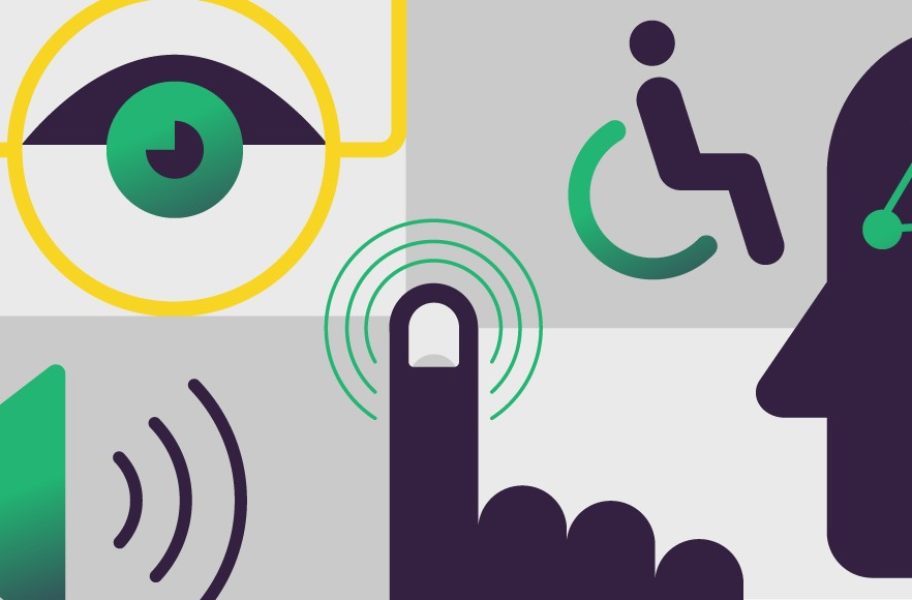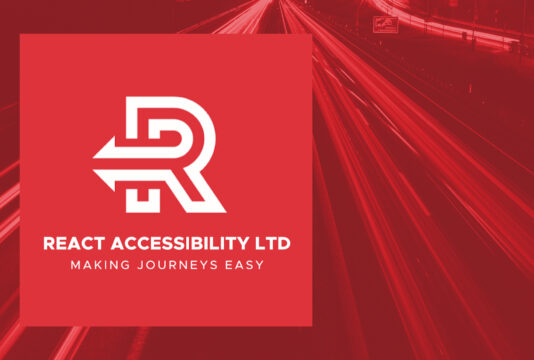
Meet the Papercast CMS Layout Catalogue: A must have resource for sharing visually impactful passenger information
We’re excited to tell you about the Papercast Content Management System (CMS) Layout Catalogue, an…

Over the last twenty years, public spaces and workplaces have been improved to make them more accessible for people with disabilities. People also need to reach these places using public transport, and we all have a role to play in this.
Most governments are fully behind transport accessibility and have introduced directives to make services open to all. At the same time, authorities and operators want to provide the best possible service for every customer. This means providing fully accessible public transport services that are easy to use, by making provisions for people with mobility issues, audio or visual impairment. Initiatives cover everything from station and platform access improvements through to easy access buses and improved audio-visual travel information.
At Papercast, we help you to go beyond your legal obligations by improving services for people with access challenges. We do this by designing our real-time passenger information display products with the user in mind, making sure our solution is intuitive, accessible and safe. We also keep track of accessibility legislation around the world and develop our functionality to meet the world’s most stringent regulations and standards.
Our e-paper passenger information displays are available with the following features and functionality. In all cases, we recommend that the accessibility elements are consistent for every display type so that users become familiar with them at all bus stops.
E-paper displays are high resolution and high contrast, which means the content is very clear and easy to read in all lighting conditions (with illumination in the dark). This is ideal for people who are visually impaired. Additionally, the exceptionally wide viewing angle of e-paper means that mobility aid users will be able to see the screen content if they are in a seated position.
Papercast displays can be installed on a pole, wall or shelter at a height that meets any prescribed reach ranges to the accessible interactive controls, such as the push-to-talk button. Our displays can also be located to meet all required viewing positions.
The Papercast content management system provides complete control over the display content. You can customize information to ensure readable font styles, depending on the height from the ground and horizontal viewing distance from the user. We support san serif fonts without italic, oblique, script or decorative fonts, and offer full control over sizing and spacing as well as character limits where relevant.
Up to four optional display control buttons allow the user to interact dynamically with the on-screen content. As well as browsing a wide range of travel information, the buttons can be used to control illumination, play recorded announcements or activate text-to-speech.
Papercast e-paper displays support text-to-speech (TTS) functionality using software that verbally announces essential information at the customer’s request. High-quality audio supports multiple major languages and delivers a human-like, engaging and personalised user experience. You can define what text can be converted to speech in the content management system, including:
Audio is delivered via embedded loudspeakers with an integrated amplifier and can be activated by pressing a push-to-talk button on the display. Alternatively, an external speaker controlled via a push-button station connected to the display device can be used.
An Audible Push Button Station (APBS) can be integrated with the displays to provide an audible message when activated and assist as a wayfinding announcement system.
TTS and audio stations can be enhanced with a hearing loop sound system to assist people with hearing aids. The hearing loop provides a magnetic, wireless signal that is picked up by the hearing aid when it is set to ‘T’ (Telecoil) setting.
Papercast e-paper displays can be fitted with proprietary beacons that use low-energy Bluetooth technology to send signals to nearby smart devices. This interface is primarily used to support those with disabilities and can provide travel information directly to passenger designated assistant devices. A QR code application is also available to synch display content with the user’s device.
We offer braille engraving or labelling on display buttons.
Passengers may well be the primary user of the Papercast e-paper displays, but we also need to consider the users of the content management system (CMS).
The graphical user interface follows the contemporary responsive website design principles as well as guidelines for accessibility for people with disabilities. All pages and most of the CMS functionality complies with Web Content Accessibility Guidelines 2.1 to level AA as a minimum. The platform has been developed using HTML 5 and marked semantically according to best practices.
For custom components, the Web Accessibility Initiative – Accessible Rich Internet Applications (WAI-ARIA) tags are used to provide a good experience for screen reader users (visually impaired, users with loss of vision or users with learning disability).
For visually impaired users, there’s adequate contrast between text and background (WCAG 2.1 AA compliance at minimum) and we comply with other guidelines, such as not using colour alone to convey meaning. Responsive web design also ensures that users can enlarge the text size (use the page at different zoom levels) without any loss of functionality or worsening the experience.
Papercast’s engineering team is constantly developing our technology to ensure it continues to keep passengers more reliably informed, providing easy access to public transport for every passenger! We are also able to provide bespoke functionality to meet specific authority or regulator requirements.
If you would like further information on how the Papercast e-paper passenger information display system can meet your accessibility goals, please get in contact.

We’re excited to tell you about the Papercast Content Management System (CMS) Layout Catalogue, an…

The REACT Trigger System is now available on Papercast displays We’re excited to share that…